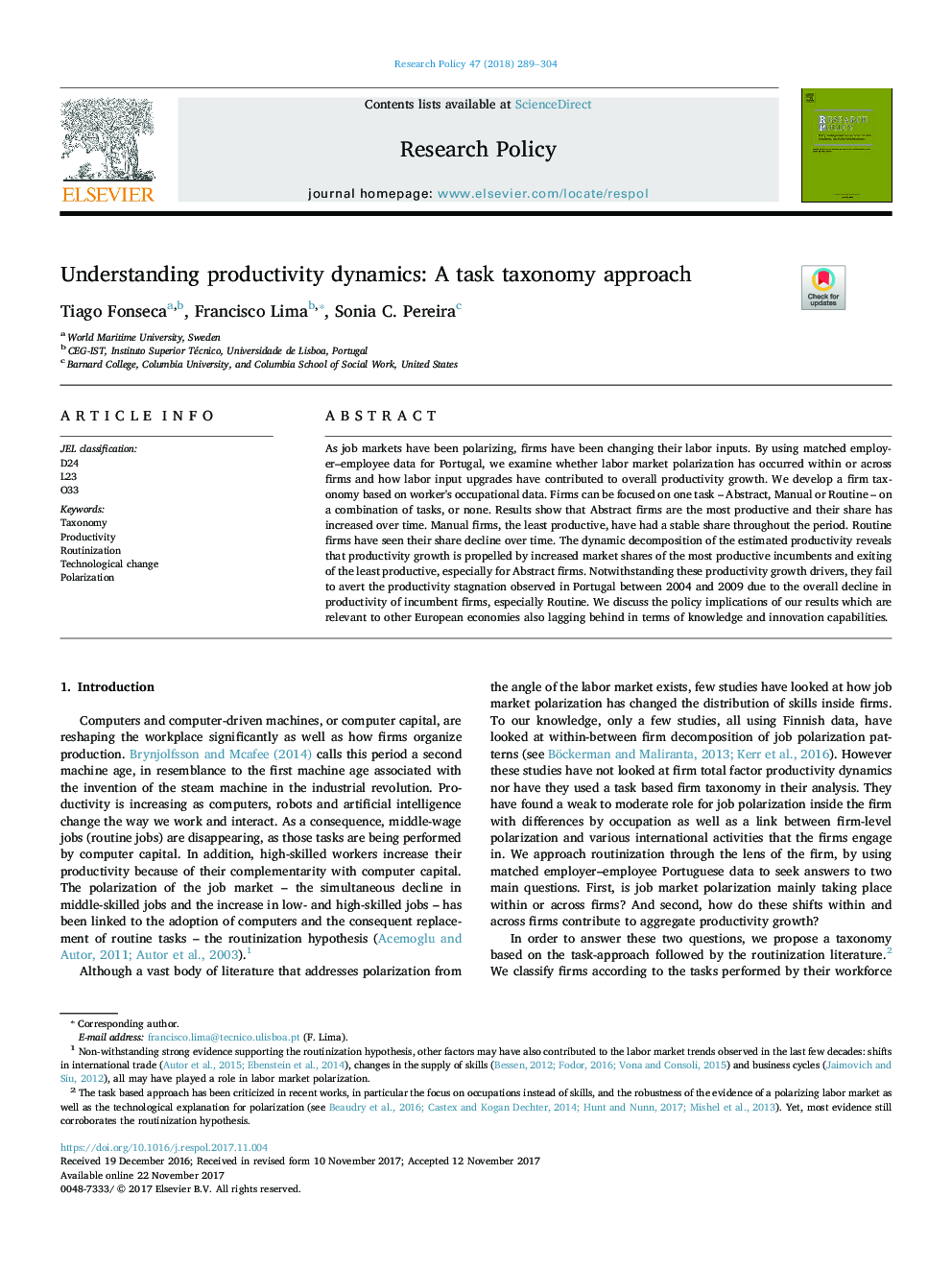| Article ID | Journal | Published Year | Pages | File Type |
|---|---|---|---|---|
| 7384617 | Research Policy | 2018 | 16 Pages |
Abstract
As job markets have been polarizing, firms have been changing their labor inputs. By using matched employer-employee data for Portugal, we examine whether labor market polarization has occurred within or across firms and how labor input upgrades have contributed to overall productivity growth. We develop a firm taxonomy based on worker's occupational data. Firms can be focused on one task - , Manual or Routine - on a combination of tasks, or none. Results show that firms are the most productive and their share has increased over time. Manual firms, the least productive, have had a stable share throughout the period. Routine firms have seen their share decline over time. The dynamic decomposition of the estimated productivity reveals that productivity growth is propelled by increased market shares of the most productive incumbents and exiting of the least productive, especially for firms. Notwithstanding these productivity growth drivers, they fail to avert the productivity stagnation observed in Portugal between 2004 and 2009 due to the overall decline in productivity of incumbent firms, especially Routine. We discuss the policy implications of our results which are relevant to other European economies also lagging behind in terms of knowledge and innovation capabilities.
Related Topics
Social Sciences and Humanities
Business, Management and Accounting
Business and International Management
Authors
Tiago Fonseca, Francisco Lima, Sonia C. Pereira,
